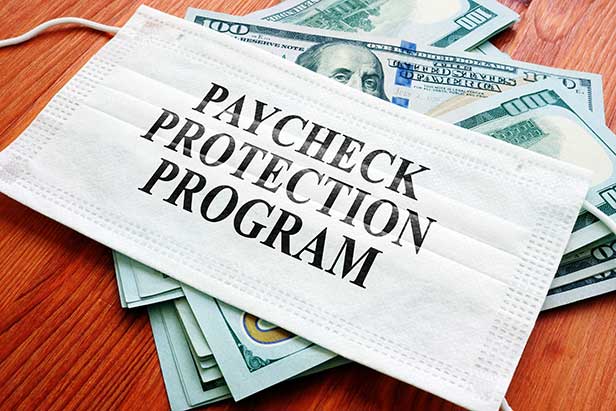July 07, 2020
Senate Passes PPP Extension
The legislation would extend the federal loan program application period by five weeks, until Aug. 8.
UPDATE Tuesday, July, 7, 11 A.M. (EDT)
President Trump signed the legislation on Saturday, July 4, extending the deadline for small businesses to apply for the PPP to Aug. 8.
Hours before the Paycheck Protection Program (PPP) was set to expire, the Senate voted to extend the federal loan program by five weeks, which would allow new applications until Aug. 8. The legislation must be approved by the House and signed by President Trump before the small-business relief program extension can go into effect.
The program, overseen by the Small Business Administration, has given out about $520 billion in loans to nearly 5 million businesses. When the program expired, there was still about $130 billion left that hadn’t been allocated.

“The resources are there. The need is there. We just need to change the date,” said Democratic Sen. Benjamin L. Cardin of Maryland, according to the New York Times.
It’s unclear when the House will vote on the new PPP legislation, since lawmakers are expected to leave Washington for the July Fourth holiday and likely won’t be returning for another two weeks.
In addition to this last-minute extension, lawmakers have been hammering out another coronavirus relief package, since many of the provisions in the $2.2 trillion CARES Act passed back in April are set to expire this month.
I have no objection to extending the #PPP deadline until August 8th.
— Marco Rubio (@marcorubio) June 30, 2020
But the vast majority of #SmallBusiness that wanted to benefit from the program have already used it.
What we really need to pass very soon is targeted help for those who need a second round of aid.
Among the items being debated is the Prioritized Paycheck Protection Program Act, or P4, which would extend the PPP application deadline to Dec. 30 or longer. It would also allow small businesses that already received a first round of PPP funding to apply for a second cash injection through the program.
The PPP launched on April 3, as part of the CARES Act. The forgivable loan program was meant to help small businesses keep workers on the payroll and take care of certain other expenses. The program got off to a rocky start, but quickly gained momentum. By April 16, the initial $349 billion in PPP funding was gone, scooped up by businesses negatively impacted by shutdown orders related to the coronavirus pandemic. Congress approved a second $310 billion round of funding on April 27. In June, lawmakers updated the program to allow more flexibility in how the funds can be used.